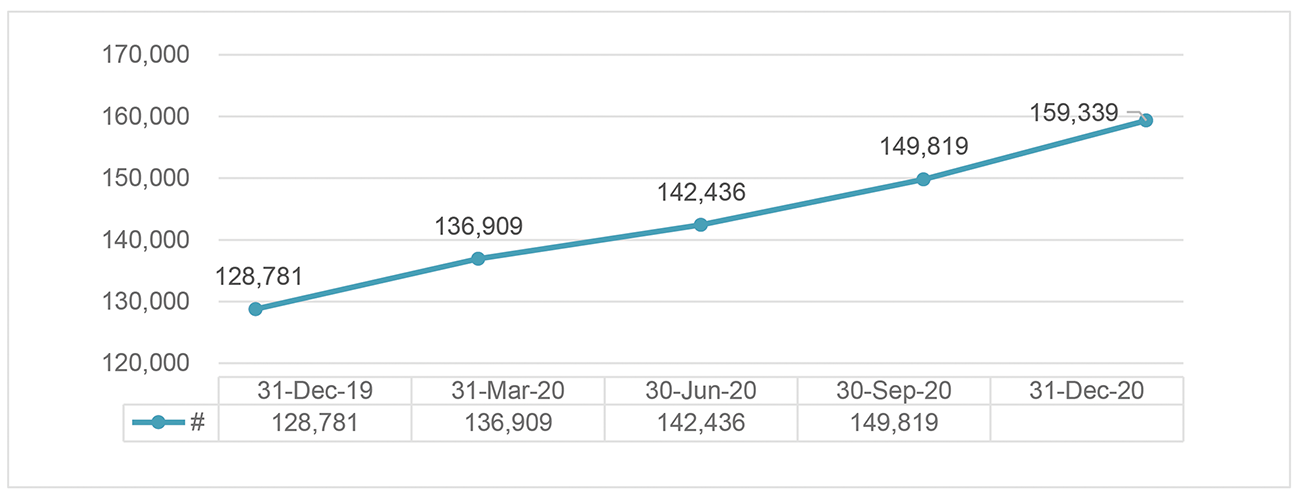Home Caring began in 2015 with a vision: to provide Australians with the high quality care they deserve, and to partner with like-minded individuals who share this passion.

Our founder, Jon Kontopos, has over a decade of aged care experience in Australia. With a clear vision to be the leader in the aged care and disability care industry, Jon decided to roll out a franchise model like no other, offering aspiring entrepreneurs an opportunity to launch their own business through an innovative joint venture partnership model.

Jon Kontopos
Home Caring CEO
Home Caring is passionate about providing the very best care to people in the community, and we are growing – in every way.
As a result of the COVID-19 crisis, the Home Caring business experienced rapid growth due to the need for extra services in 2020, most of which are subsidised by the Government. Throughout that year, the number of hours of service we provided to our clients across the franchise network increased by 250%.
As an AFR Fast Starter company,
Home Caring has tripled its growth in hours of service provided from March 2020 to February 2021,
despite the impact of a global pandemic.
we provide home care to over
15 linguistically diverse communities
that call Australia home.






The FCA Award’s Emerging Franchisor category recognises excellence in practice by an emerging business that has been franchising its brand for two to five years. Home Caring was awarded first place in 2021, an achievement which acknowledges our success in a high-growth industry.
Home Caring achieved the top score in the FCA awards based on five franchisee categories: planning and strategy, leadership support and satisfaction, business performance, financial performance and good citizenship.
The Government’s investment in home care, coupled with an ageing population, offers plenty of growth potential in the home care market. The two main streams of funding we access are through the NDIS and Home Care Packages.
The National Disability Insurance Scheme is a way of providing people with a disability care and services that help them to achieve their goals and participate in the community. Each participant in the scheme develops a plan with a Local Area Coordinator that is derived from goals they would like to achieve. The plan is then developed into an individual budget which is set out in the following areas:
Core – Daily activities, social, community & civic participation, consumables, transport. The Core supports budget is not prescriptive and can be used flexibly based on the participants wants and needs.
Capital – Assistive technology, home modifications. This funding is not flexible and must be used as agreed in a participant planning meeting.
Capacity Building – Daily activity, choice and control, employment, social community and civic participation, health and wellbeing, home living, lifelong learning, relationships and support coordination. This funding can be used flexibly as aligned to a participant’s goals.
To provide services under the NDIS, you must be registered as an approved provider and undergo “Third Party Verification” successfully. Circumstances where you may provide services when not registered include if the participant has another organisation managing their plan, or they are managing their own plan.
If the NDIA (National Disability Insurance Agency) is managing the participants plan, the provider must be registered to start services. The NDIA sets out the price guide that registered providers must follow if providing services to an NDIA managed participant. The price guide is updated annually.
Participants are receiving significantly higher levels of funded support:
Government funding for home care can only rise, as healthcare moves towards a consumer-based model that aim to prevent overrun hospitals and premature admission into aged care homes. The most recent budget forecast is that NDIS funding will be more than $30 billion in 2024-25 compared to $16.7 billion in the Financial Year 2021. In disability care, at 31 March 2024 was 649,623 people are being supported by the government through the NDIS – a figure that will increase to over 682,000 people by 2025
Home Care Packages are designed to assist people over 65 to continue to live independently in their own homes. Home Care Packages are implemented with individual budgets, depending on the needs of the client. The government provides a daily subsidy for consumers to spend on their care needs. Their expenses are delivered and managed by a service provider and must be based on goals.
The service provider may set fees such as initial assessment fee, administration fee and case management fee.
This information must be transparent and provided to the client before they agree to sign up with the provider. The provider must also provide monthly statements which give clear information on where the funds are being directed, including money in (government subsidy and client fees) and money out (expenses including direct care services, consumables and administration fees).
The client must be assessed by the Aged Care Assessment Team (ACAT) and made eligible before they are able to access a Home Care Package. To receive assessment from ACAT, the client must register with My Aged Care.
The ACAT assessor will assess and approve eligible people as requiring different levels of care:
All Home Care Packages must be delivered on a Consumer Directed Care basis which means that the care and services provided must meet the needs and wishes of the client receiving the package. There are things that a Home Care Package cannot provide which include services that a person without a disability or frailty would be expected to pay (rent, fees, food, medication and more).
In 2016, there were around 3.7 million Australians aged over 65. By 2056, it is expected that this number will grow to 8.7 million (Australian Institute of Health & Welfare).
The government responds to this projected increase in over 65’s population by emphasizing the importance of staying at home and increasing funding to in-home services. The growing market and demand for in home services presents a perfect opportunity to join an already successful group, dedicated to providing quality care and innovative services to their clients.
At 30 September 2021, 186,570 people were in a Home Care Package, an increase of 24.5% increase over September 2020. A further 17,576 were considering whether to take up their offer and 51,662 people who were seeking a HCP at their approved level had not yet been approved. The estimated number of HCPs across the forward estimates is 275,597 by June 2025.

Since the 2018-19 Budget, the Government has announced the release of an additional 83,105 HCPs at a cost of around $5.5 billion.
Table 1: Announcements made for additional HCPs since the 2018-19 Budget
| Budgut Updating | Timing of Announcments | HCPs | Expenditure($m) |
|---|---|---|---|
| 2018-19 Budget | May-18 | 14,000 | 1600.4 |
| 2018-19 MYEFO | Dec-18 | 10,000 | 287.3 |
| 2019-20 Budget | Apr-19 | 10,000 | 282.4 |
| 2019-20 MYEFO | Dec-19 | 10,000 | 496.3 |
| 2020-21 Budget | Jul-20 | 6,105 | 325.7 |
| 2020-21 Budget | Oct-20 | 23,000 | 1,620.6 |
| 2020-21 MYEFO | Dec-20 | 10,000 | 850.8 |
| Total | 83,105 | 5,463.5 |